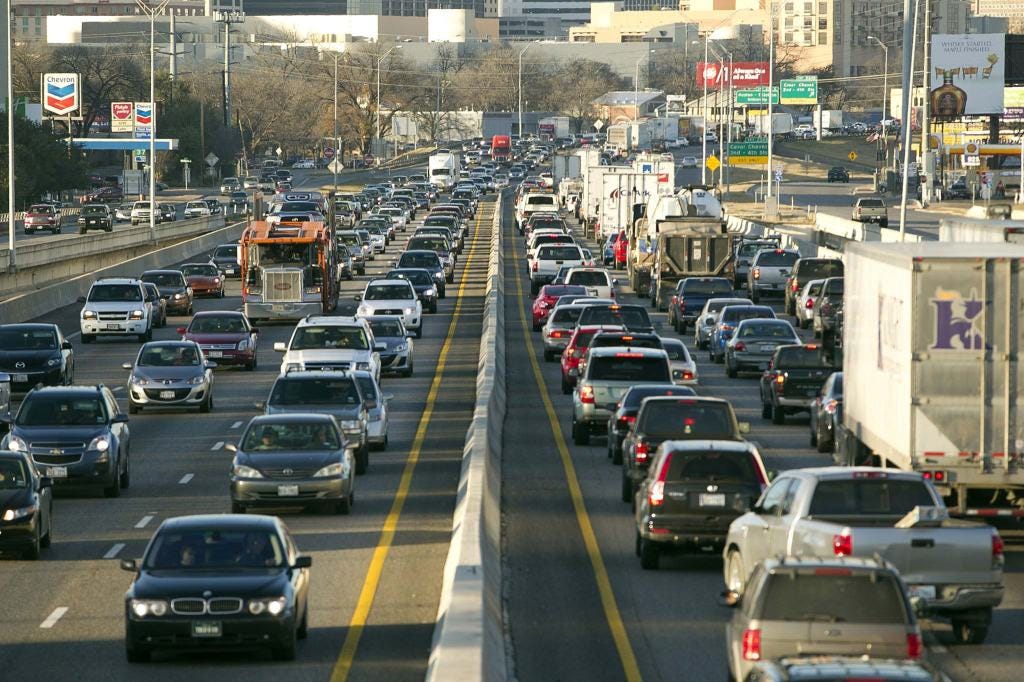The Future of Urban Transportation
Decarbonization, micromobility, and the growing movement of fare-free transit
Hello and welcome to the Collective Form Weekly. We share news and research every week on urban design and planning from cities around the world.
→ Visit us at collectiveform.io
Future of Cities
We’ll be at the annual Wharton Future of Cities conference at the University of Pennsylvania this Friday, January 20th. The conference will feature panel discussions on cities and climate change, infrastructure, and the metaverse. Let us know if you’re planning to visit — we’d love to meet and chat!

Decarbonizing Transportation
Transportation accounts for 1/3 of all domestic greenhouse gas emissions in the U.S. The impact is most keenly felt within disadvantaged communities — usually divided by a major transportation corridor — and negatively affects public health and the wellbeing of millions of urban citizens around the country. The affect is exacerbated by the high cost of transportation, particularly in regards to private vehicle ownership, for which the average American will spend more than $650,000 to own a car over her lifetime.
In January 2023, the U.S. National Blueprint for Transportation Decarbonization was jointly released by the U.S. Secretary of Energy, U.S. Secretary of Transportation, U.S. Secretary of Housing and Urban Development, and Environmental Protection Agency Administrator. The plan includes a call to action with the intention of achieving the following milestones:
~2030 – Turning the Tide on Transportation GHGs: Research and Investments to Support Deployment
2030-2040 – Accelerating Change: Scaling Up Deployment of Clean Solutions
2040-2050 – Completing the Transition: A Sustainable and Equitable Future
Micromobility
Paris Mayor Anne Hidalgo has announced a public referendum to determine the fate of shared micromobility services, particularly free-floating electric scooters, in the French capital. The licenses for Dott, Lime and Tier — the three scooter companies currently operating in Paris — are set to expire on March 23rd, 2023. The issue is “extremely divisive”, according to the mayor.
“If Parisians want to own their own scooter, there’s no issue. But we have a real issue with free-floating scooters. It’s not climate-friendly. Employees working for these companies are not properly treated…” Mayor of Paris told Le Parisien.
Paris Deputy Mayor in charge of transport, David Belliard, is against shared micromobility services. Despite the branding of these services as a “green” alternative to private vehicles, the context around transportation in Paris is different from that of a major U.S. city like Los Angeles. In many cases, shared scooter rides are replacing the same trips taken on public transit.
Fare-free Transit
Starting in July 2023, Washington, D.C. will become the latest U.S. city to eliminate bus fares. The U.S. capital joins a growing movement of cities — including Boston, San Francisco, Denver, and Kansas City — experimenting with fare-free or zero-fare transit with the goal of making metro bus and rail systems free.
“I don’t charge you when you need the fire department, but yet we’re going to make sure there’s a fire department when you need it. That’s how you need to think about this,” Charles Allen, one of the D.C. city councilmembers who introduced the bill, said in an interview with CNBC.

The Urbanist
We’ve been listening to Monocle’s The Urbanist podcast, and we love hearing the perspectives of designers, planners, and policy-makers from North America to East Asia. Here are a few of the episodes we’ve enjoyed recently:
Insite is a collaborative GIS tool for publishing project information and collaborating with citizens. We’ve designed it to be used for urban planning and mobility studies that seek to diversify transportation options and encourage more transit-oriented and mixed-use development in urban areas.
🗺️ Create interactive maps
🌐 Publish project information online
🙋♀️ Collaborate with citizens
→ Sign up for Insite Early Access at collectiveform.io






